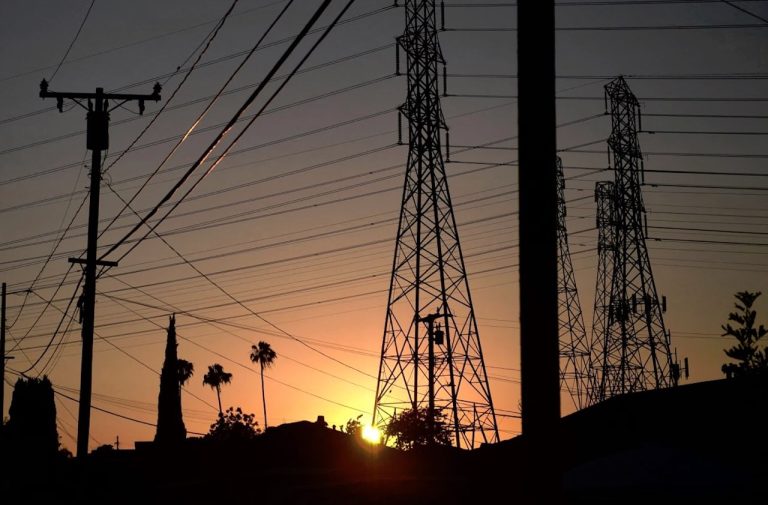
U.S. energy policy urgently needs a course correction. As our nation grapples with growing energy demands and challenges, the second Trump administration faces the difficult task of undoing a host of harmful regulations and ill-conceived decisions enacted by his predecessor. [emphasis, links added]
Because some of these policies won't be eliminated anytime soon, work to eliminate them must begin immediately.
Earlier this year, the Biden administration finalized a power plant rule that would require existing coal-fired power plants and new gas-fired power plants to control 90% of their carbon emissions through carbon capture and storage (CCS) processes.
The technology has not been “fully demonstrated” and could violate Section 111 of the Clean Air Act. In fact, CCS is not working to its full potential.
These impossible standards will force many factories to close and make it difficult for new ones to open, leaving millions in the dark.
The so-called transition to intermittent wind and solar, the ultimate goal, has led to power shortages and soaring electricity prices in regions with ambitious renewable energy targets. This rule needs to go.
Additionally, the Electric Vehicle (EV) Directive (EPA and NHTSA mandates) will result in EVs accounting for approximately two-thirds of all new vehicle sales by 2032.
Electric vehicles are only popular among certain groups of people, but have failed to capture the interest of most drivers due to their high price, limited range, lack of charging infrastructure and reliability issues.
Consumer survey reports show that only 18% of American adults are “likely” to buy one as their next car; 63% are “unlikely or very unlikely.” Nearly half of electric vehicle owners are likely to switch back to internal combustion vehicles.
Electric vehicles are piling up on the auto market, and manufacturers are suffering huge losses; Ford reported a loss of $132,000 per vehicle in the first quarter of this year. More than 4,000 dealers signed a letter pleading with the government to take advantage of the breach.
Consumer choice is critical and should not be denied or influenced by government officials. The EV rule needs to go.
Another damaging rule from the EPA involves the National Ambient Air Quality Standards (NAAQS) for fine suspended particulate matter (PM2.5).
Traditionally conducted every five years, the newly formed EPA initiated additional NAAQS reviews just 33 days after the review was completed in December 2020, and the number of reviews was deemed completely sufficient. The new PM2.5 standard is reduced by more than 25%.
It is estimated that US$270 billion in GDP and approximately 2.9 million jobs or equivalent jobs may be lost each year, posing a serious threat to the manufacturing industry and the US economy.
With the world's most stringent standards in place, companies may relocate overseas to less stringent environments; new investment will be discouraged. This action by the EPA should never have happened and must be reversed.
In January, the Biden administration shocked the energy industry by suspending pending and future liquefied natural gas (LNG) export projects. This politically motivated decision will only hurt our European allies, who are forced to seek natural gas from hostile countries like Russia.
Contrary to claims that LNG is harmful to the environment, studies show that it can reduce emissions by 40-50% by displacing polluting forms of energy such as coal.
After becoming the number one exporter of LNG last year, we have the ability to supply cleaner fuel to the world and weaken Russia's control. This authorization must be revoked.
Biden rents 95% less Oil and natural gas acreage in fiscal year 2023 exceeded the highest figure set by Trump in 2019 and reached the lowest level in U.S. history. Despite the decline in production, companies are still managing to produce more oil and gas.
However, estimates suggest this decision will result in a $33.5 billion loss in GDP by the end of Biden's term; we could be producing much more.
Fossil fuels have and will continue to meet 82% of our energy needs. This has not changed in the past few decades and will not change in the coming decades. We must recommit to oil and gas leasing on public lands to unlock the possibility of meeting growing demand.
Becoming a net oil exporter was a huge achievement in 2019; we need to maintain this position. Energy security is national security.
The use of wind and solar power should represent only a small portion of the overall energy mix. Has the lowest capacity factor of all energy forms and contributes to grid instability when widely adopted as an alternative to fossil fuels or nuclear energy, They are not meant to be a primary source of energy.
Nor should they accept massive relief, which would require repealing the heavily subsidized Inflation Reduction Act. Our European friends have learned the hard way the folly of this strategy. Their priorities must end.
The reluctance to mine and process critical minerals for countless technology and energy projects on our soil needs to be re-examined. China currently dominates supply chains, leaving other countries at its mercy.
Leveraging our vast supply will not only enhance national security, but will also benefit the environment due to the exceptional standards here. We should open our lands to more exploration.
Energy is the lifeblood of the economy, and consumers deserve adequate, reliable and affordable energy. As energy demand continues to grow, this can only be achieved through pragmatic and smart solutions that maximize energy output and focus on a truly integrated strategy.
Disastrous Biden policies that have tied up our supplies and undermined economic prosperity must be eradicated. January's course correction will be most welcome.
To read more, visit RealClearEnergy
